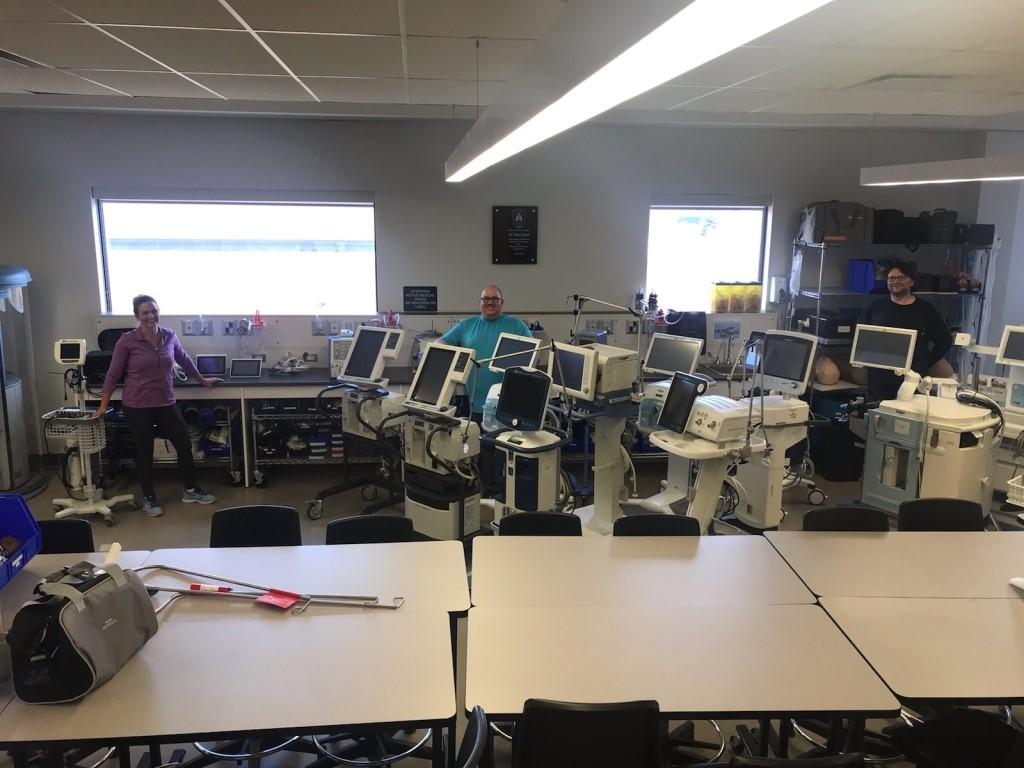As the COVID-19 pandemic continues its devastating global advance, with almost 640,000 confirmed cases and more than 30,000 deaths across 203 countries reported by the World Health Organization on March 30, health authorities everywhere are trying to find ways to access more ventilators and related respiratory support equipment to meet the needs of critically ill patients.

Conestoga is making the college’s fleet of adult, neonatal and paediatric ventilators, high flow oxygen units, video intubation and video bronchoscopy equipment and anaesthetic gas machines available for the province to deploy to Ontario hospitals.
Ventilators are essential in assisting or replacing breathing functions for those with severe respiratory conditions, pumping oxygen into the bloodstream to keep organs functioning. Critical shortages of equipment and the qualified professionals required to use it have forced doctors in countries such as Italy and Spain to make grim life-or-death choices in allocating scarce resources in the face of overwhelming demand.
In Ontario, hospitals and governments are working to bolster their inventory of life-saving medical devices to address potential demands in the event that COVID-19 cases spike here as well.
Conestoga is answering the call, making the college’s fleet of adult, neonatal and paediatric ventilators, high flow oxygen units, video intubation and video bronchoscopy equipment and anaesthetic gas machines available for the province to deploy to whichever Ontario hospitals have the most acute need.
“During these difficult times, it’s clear that our health system will be stretched, and the need for critical care equipment will be greater than ever,” said Pam Hall, coordinator of Conestoga’s Respiratory Therapy program. “We’re happy to be able to make this contribution in support of patient care.”
The donated equipment is normally used by students in the Respiratory Therapy program as they develop hands-on skills for their future careers as critical care providers. In-person classes and labs are currently suspended across the college’s network of campuses in adherence with Public Health guidelines aimed at arresting the spread of the COVID-19 virus.
The field of respiratory therapy has been thrust into the spotlight as a result of the global pandemic. These highly trained specialists are skilled in respiratory assessment, oxygen therapy, airway management and mechanical ventilation, essential skills for managing the sickest COVID-19 patients.
“We have never needed our Respiratory Therapists more than we do today,” Hall said. “Their knowledge of the science of mechanical ventilation is at the highest level. They are the people at the head of the bed, they are placing endotracheal tubes in patient’s airways and initiating and managing mechanical ventilation for those that can no longer breathe for themselves.”
Canada currently has approximately 12,000 practicing respiratory therapists. Hall predicts that their skills and knowledge will be desperately needed in the weeks and months ahead.
Approximately 100 students are currently enrolled in Conestoga’s Respiratory Therapy program, a nationally accredited program designed to satisfy the educational requirements for registration as a Registered Respiratory Therapist based on the National Competency Framework for Respiratory Therapy.
For more information, visit www.conestogac.on.ca/fulltime/respiratory-therapy
